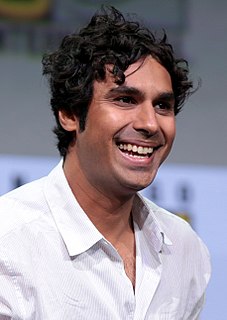A Quote by Melissa Leo
I was really not familiar at all with Edward Snowden. I like to get that right out of the way and really learned most of what I know from Oliver's [Stones] script.
Related Quotes
Let us not compare Edward Snowden's situation with that of Chelsea Manning or Jeremy Hammond, who is also imprisoned in the United States. As a result of WikiLeaks' hard work, Edward Snowden has political asylum, has travel documents, lives with his girlfriend, goes to the ballet and earns substantial speaking fees. Edward Snowden is essentially free and happy. That is no coincidence. It was my strategy to undo the chilling effect of the 35 year Manning sentence and it has worked.
We don't stand here alone, it's possible through the great organisations that support us. The disclosures that Edward Snowden revealed aren't only a threat to privacy but to democracy, when the most important decisions made affect all of us. Thank you to Edward Snowden. I share this with Glenn Greenwald and other journalists who are exposing truth.
Mark and jay Duplass really like to improvise. Even if we beg them to go back to the script, they invariably ask us to go "off the rails," as they like to call it. It's just the way they work. You get a full written script. And it's really, really, really good, so that's why it's kind of peculiar that they always want you to improvise, because if I wrote something that good, I would want everyone to stick to the dialogue that was written.
There were [in Wilson] a lot of clues in it that you don't normally get, you know, normally you use your imagination or whatever, you get some clues in the script, of course, but yeah, it was really helpful, and I really like the graphic novel. There's stuff in there, there's a couple things in there I really wanted to use that they couldn't get in the movie, but it's definitely, he's a unique guy, you know, I never read a character like this before.
Americans have a hard time writing moms. I'll get a script and everything's really great and well-drawn, but the mom is like stock footage, they go and get that out. They plug it in, this idea of "mother." You could lift moms out of any script, no matter what the culture, what the neighborhood, what the economic status, and you could switch them around, and they'd be the same person. I think it's because most people don't really have a human idea, a specific life that they attach to who their mother was. Their mother was there for them, so it either gets deified, or the opposite.
It all started with the most basic level of Uta Hagen, right at the beginning. I'm like, 'Really? I came to grad school; I'm going to do the 'Respect for Acting'?' And I realized the importance of that, because it was really to just get you to get rid of everything. Get rid of everything you've learned and just start from the bottom up.
My assessment of Julian Assange is a professional one, really, of what he's managed to achieve, and the idea that he came up with, which set the world alight and continues to inspire others like Snowden [NSA leaker Edward Snowden], about the secret goings-on that are done in our name with our tax dollars on behalf of big business or politics. He launched the revolutionary idea that citizens can start to claim back a paradigm for questioning power structures and those in authority through an anonymous, whistle-blowing website.
When I'm improvising, I'm out of my head. I've done a lot of projects recently where there hasn't been a script. It's all been based on outlines. At first, that's terrifying, just because you don't have the words in front of you and you don't know how it's going to come out, but that's what's really exciting about it. You don't know what's going to happen. It really forces you to listen to the other people, and I think the most natural acting comes out of that.
I would always choose the script. You get more creative control that way. But, when you're in a situation like this, where everyone is really funny and you really want to do it, that's the chance of a lifetime, so you want to do it. But, a script has longer legs than a performance and, in the end, is more satisfying. It's harder, but it's more satisfying.
Here's what I didn't know when I was starting out that I now know…I thought when you were starting out it was really hard to write because you hadn't broken in yet, you hadn't really hit your stride yet. What I found out paradoxically is that the next script you write doesn't get easier because you wrote one before…each one gets harder by a factor of 10.




































